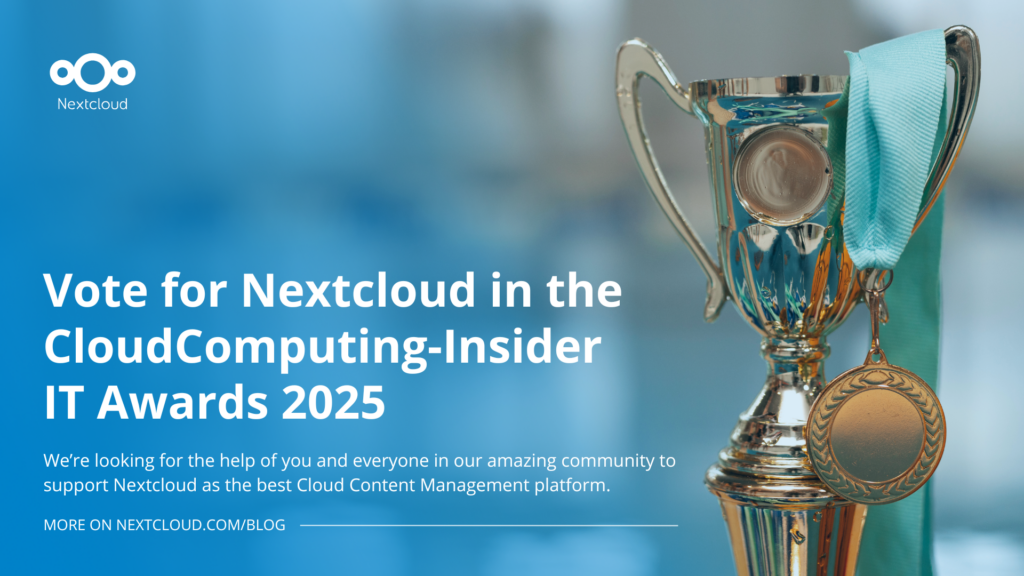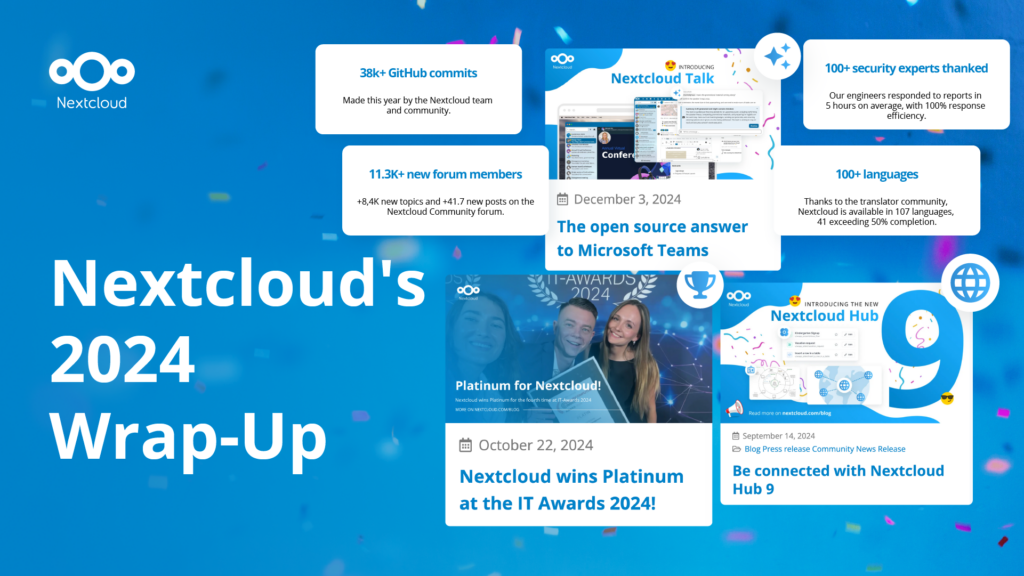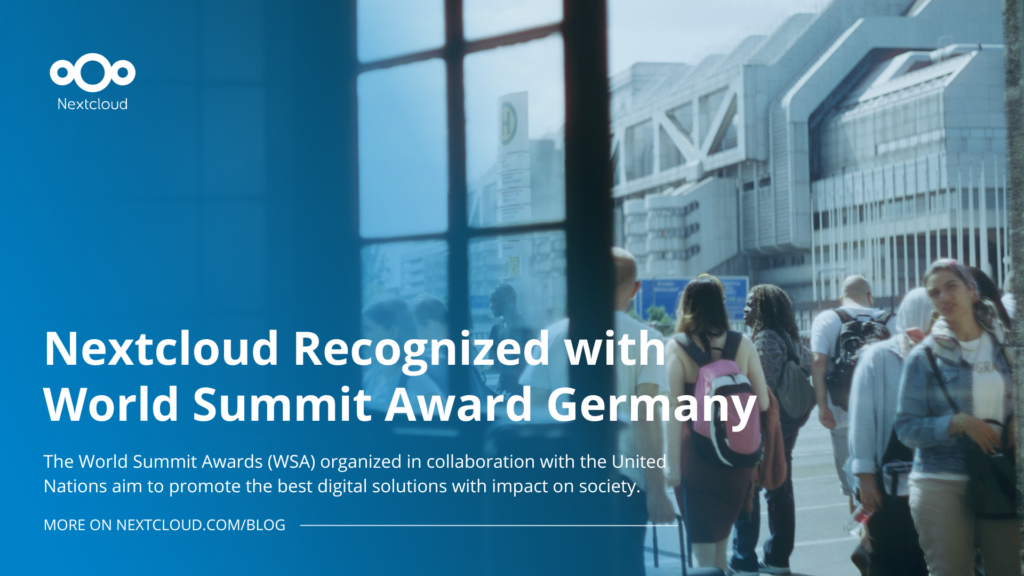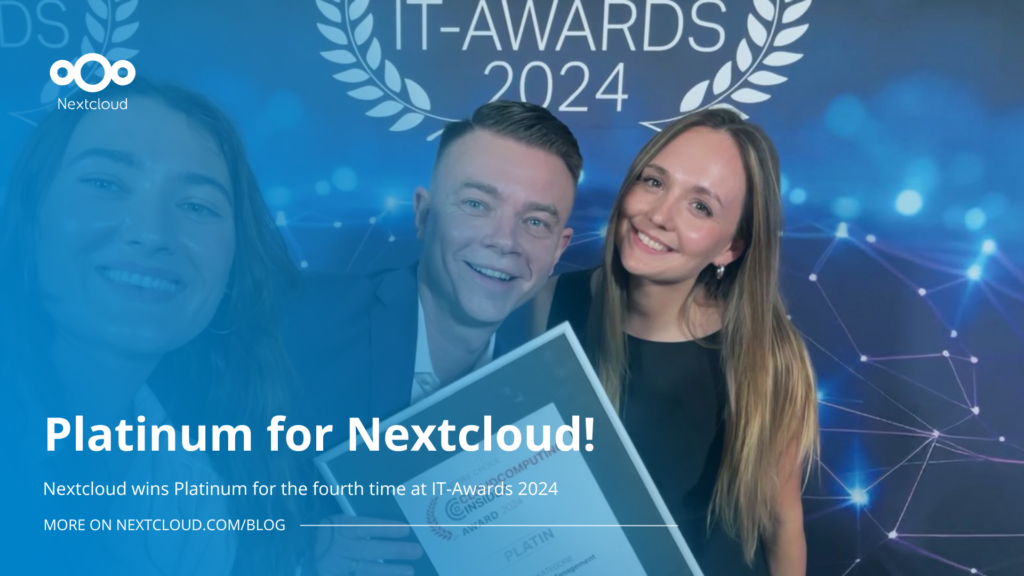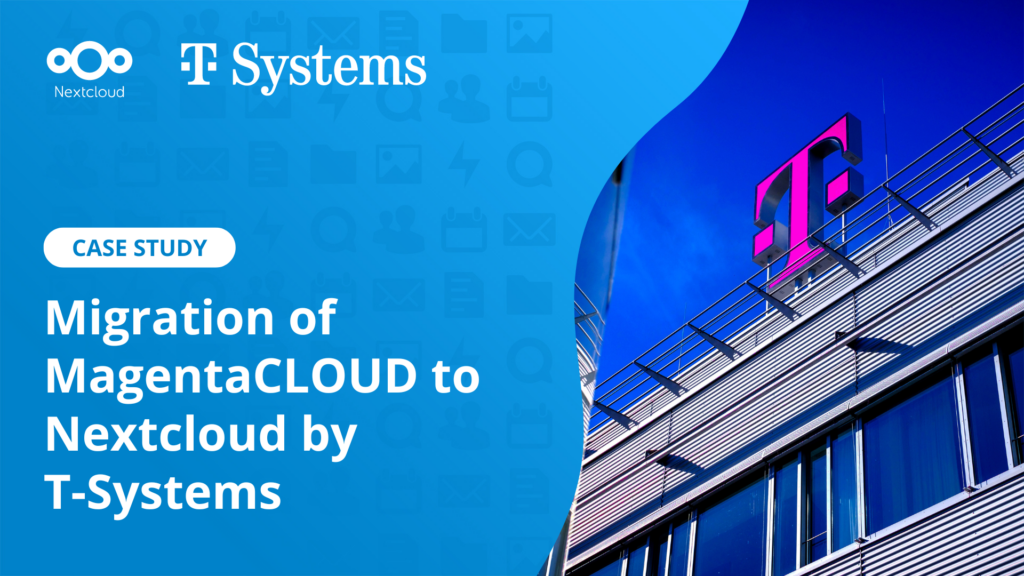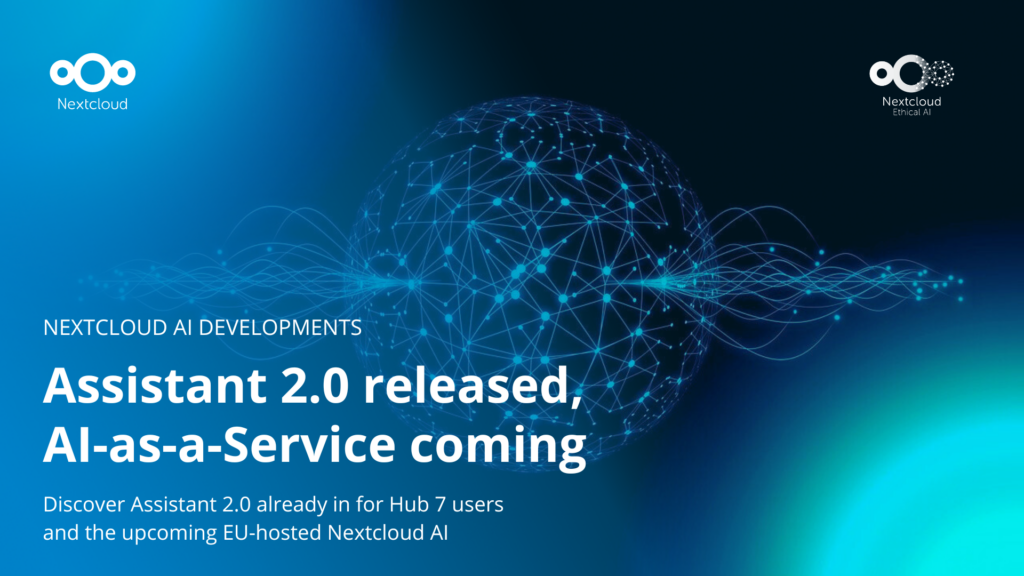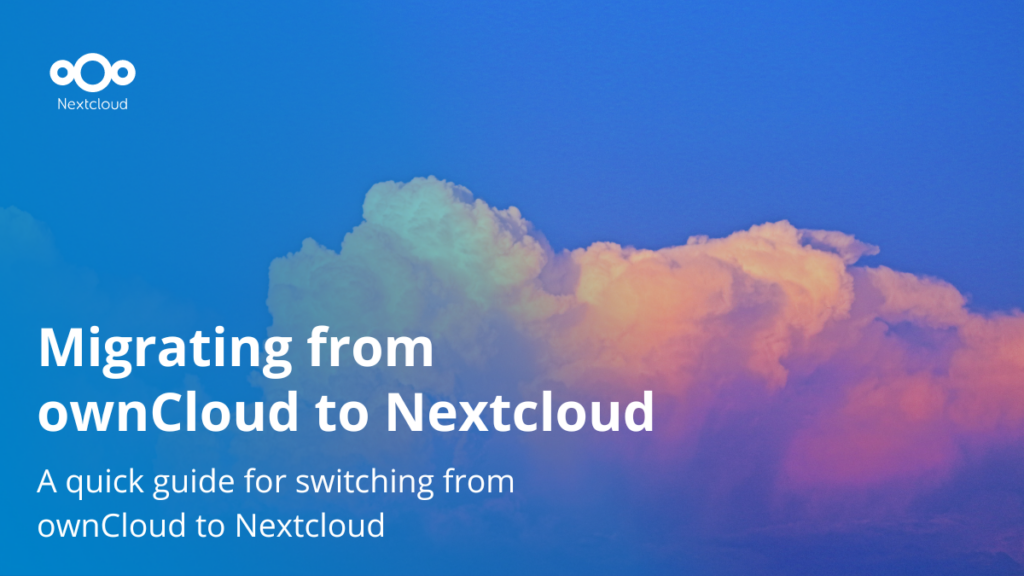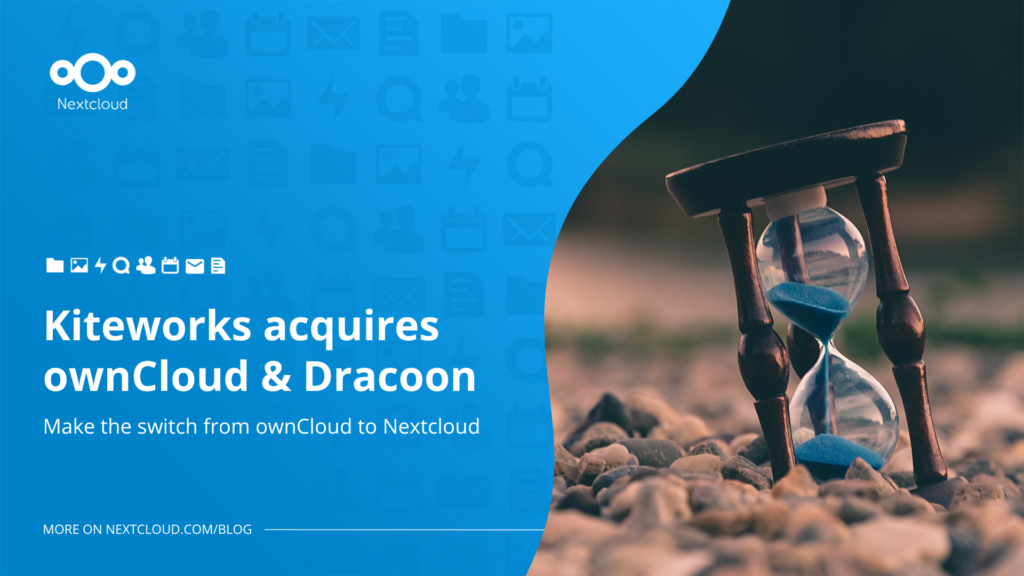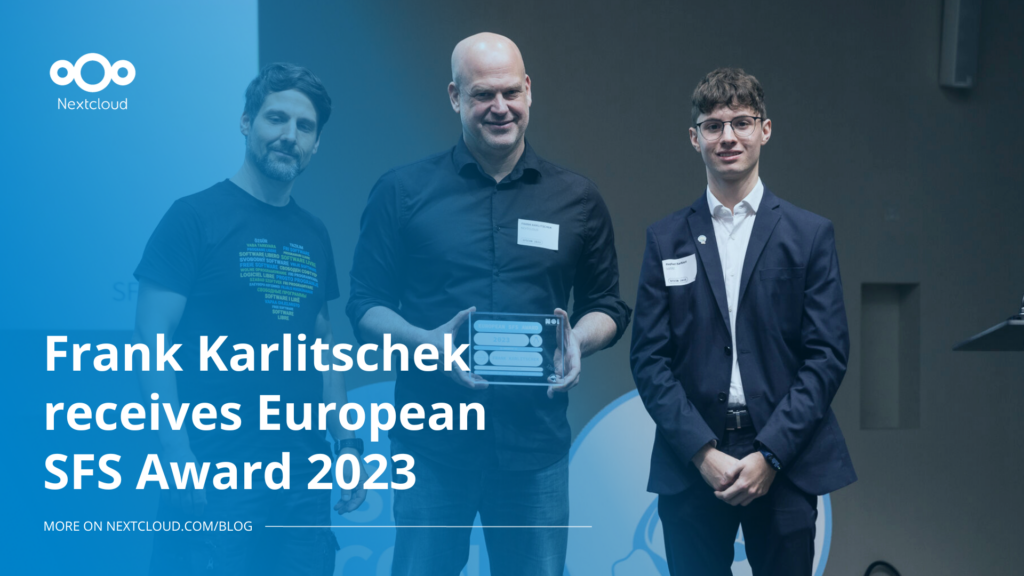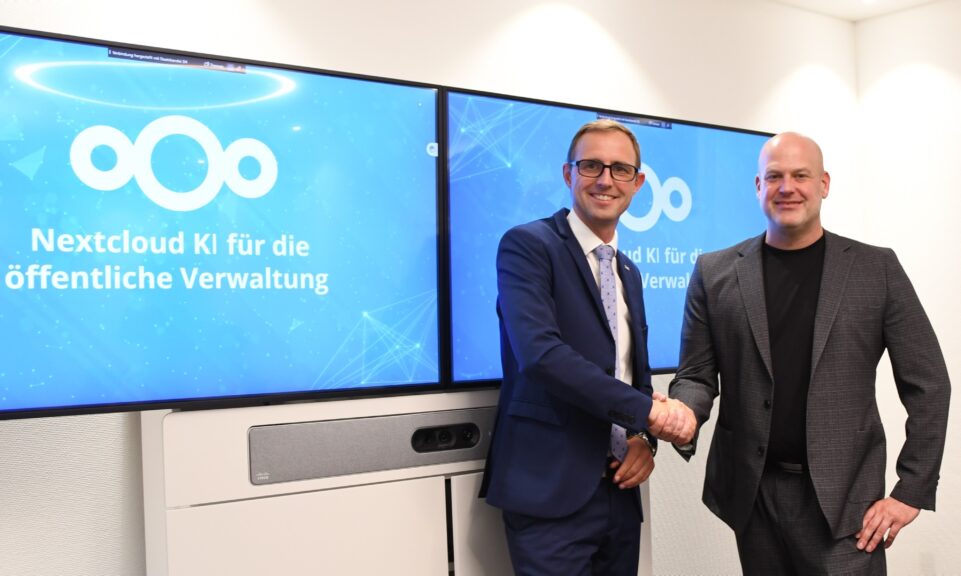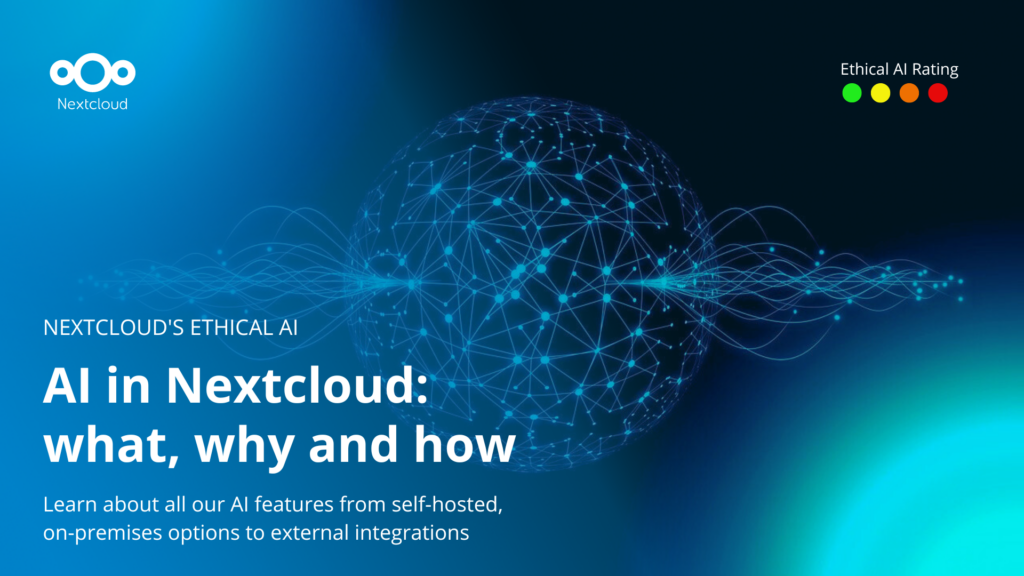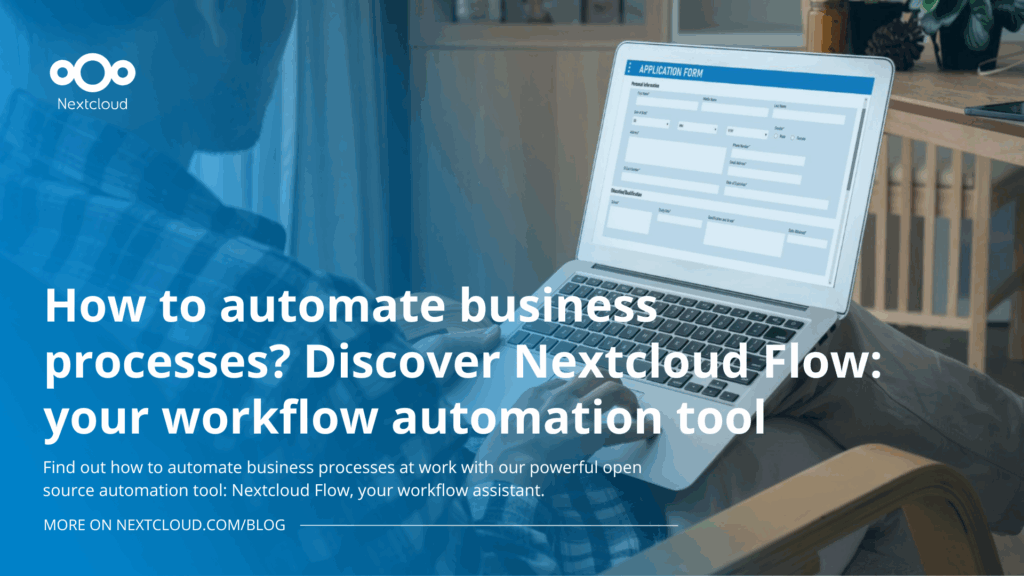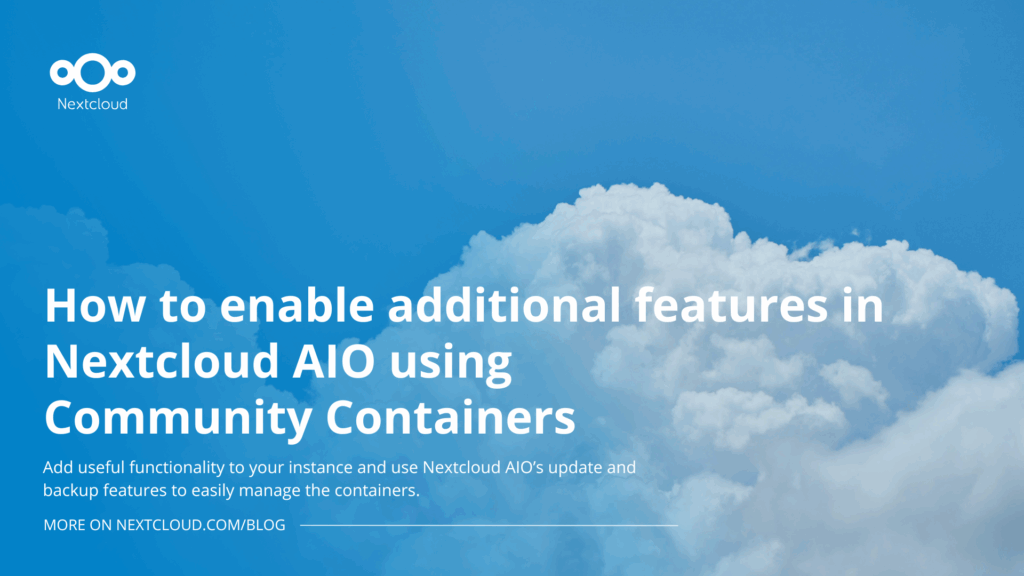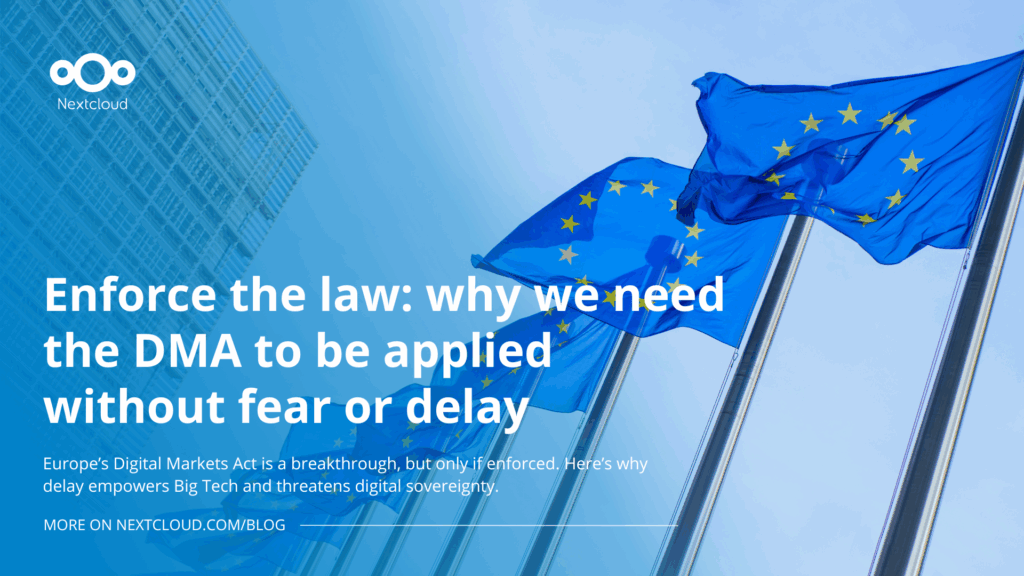Federation: a foundational concept for digital sovereignty
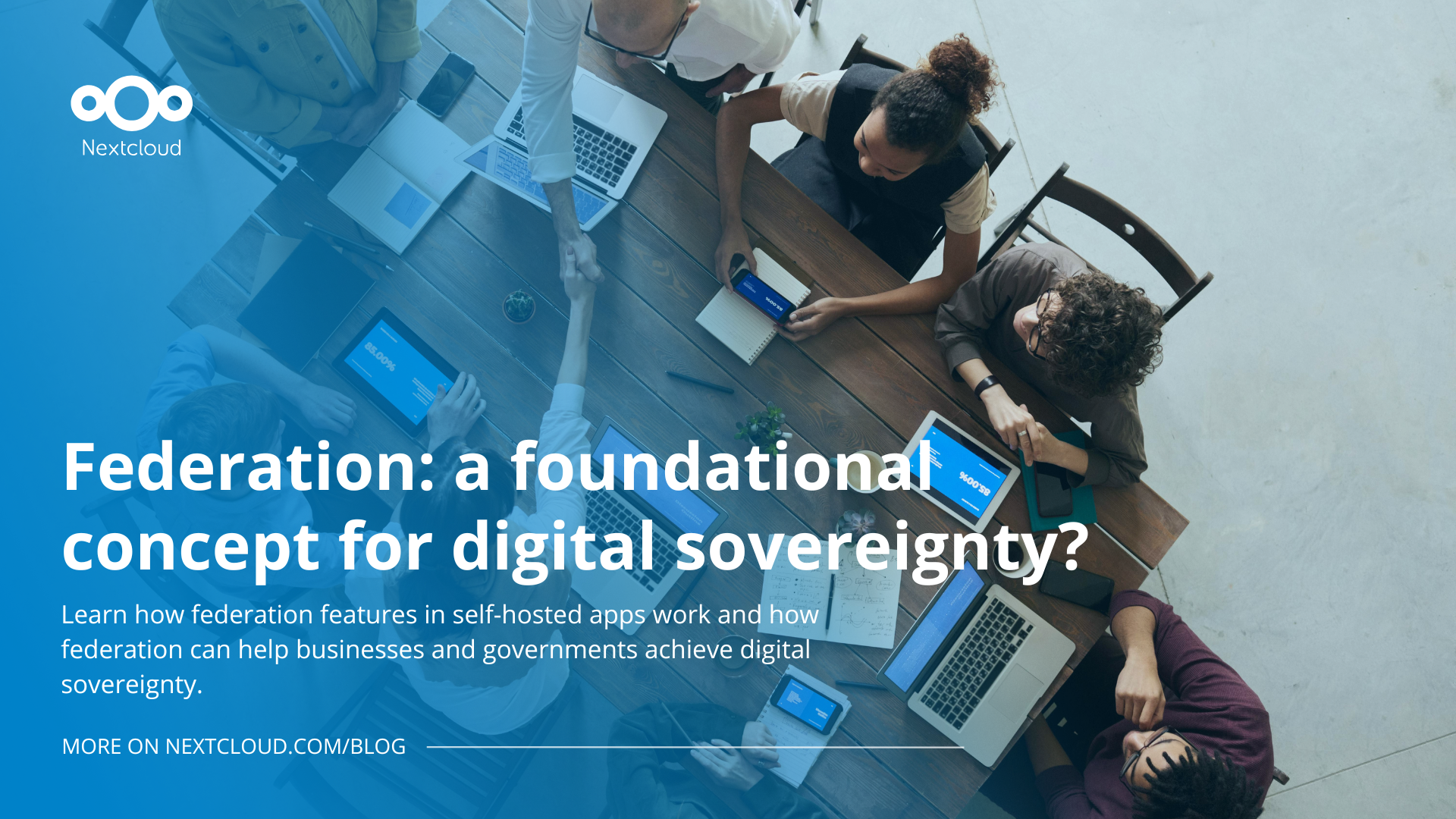
Federation offers a solution to the challenges posed by centrally controlled public cloud applications by letting users communicate and collaborate between independent servers and even independent apps. In this article, we explain how federation works, what features you can use with federation in Nextcloud, and discover how it can help businesses and governments achieve digital sovereignty.
Whether you’re new to federation features or already familiar with them, let’s start with the basics.
Understanding the federated internet
It’s a well-known fact that on premise software offers more autonomy compared to public cloud tools in several ways, largely due to the level of control organizations have over their infrastructure and data. Self-hosting is a definition of decentralization in the realm of collaborative technologies. An important question arises when considering self-hosting: how can we collaborate effectively using decentralized software?
The answer lies in federation – it’s the key to making decentralized collaboration possible. To understand federation, you need to ask yourself – how does email work? Email is, in fact, federation in action: it operates through a network of independent servers connected via standard protocols and allowing users from different domains to exchange messages with ease via single client.
Or take Mastodon, a federated social network where each instance is a separate server run by an independent entity or community. Each user can sign up on an instance they prefer, and then follow, reply to, or message users on other instances, making communication across the entire network seamless.
In Nextcloud, user’s Federated Cloud ID works similar to an email address or a Mastodon handle, allowing them to exchange data across servers: share files and and collaborate on documents, communicate in group chats and make audio and video calls.
Federation and digital sovereignty
Federation enables private users, organizations, and their departments to use independent infrastructure, hosting their software locally with customized security and compliance measures. Each entity operates its own platform while staying connected to a larger network that supports cross-server collaboration. This decentralized architecture reduces reliance on a single service provider. It also frees you from vendor lock-in, allowing you to choose a trusted provider and work with the software that meets your needs, all while retaining the ability to collaborate seamlessly across different platforms.
Regulators are responding to a growing backlash against big tech firms from users who perceive their behaviour as market abuse, with the term ‘malicious compliance’ being used. This trend causes a growing interest in decentralization technologies.
Frank Karlitschek
Nextcloud founder

Finally, self-hosting with federated features gives you full ownership and control over your data. You choose your own encryption and own access controls, or get more flexible where others can’t, pursuing only your own compliance objectives. Companies and governments can avoid numerous risks by not having to store data under unfavourable regulations, break free from the privacy terms of large cloud providers, and enjoy freedom without being controlled by foreign entities.
Federation in Nextcloud
In Nextcloud Hub, it is already possible to do a lot when it comes to federated collaboration, as we mentioned above. For example, you can share files across servers and even collaborate on them, while federation in Nextcloud Talk enables you to join group chats and run meetings on another server.
Besides better security, easier compliance and more independence, there’s also convenience: you don’t need to send invites or create guest accounts, or set up your own on somebody’s instance. Just use your own account and stay within familiar interface of your home platform — you won’t even notice any difference.
Sure, there are certain limitations, for example, you can’t create private federated chats in Nextcloud Talk yet. But we already support many essential and handy features like polls, markdown and user mentions. And federation in Nextcloud constantly evolves as we explore more abilities of the Federated Cloud Sharing API.
OCM, a foundation for federation features in Nextcloud
Federated Cloud Sharing API in Nexctloud has been invented by Nextcloud founders Frank Karlitschek and Bjoern Schießle. It is a collaboratively developed standard that is a part of Open Cloud Mesh (OCM), an initiative of the GÉANT Association, a European collaboration on e-infrastructure and services for research and education.
Federated tools available in Nextcloud
Federated file sharing
Share documents and media to users in other Nextcloud Hub instances for viewing, editing and collaboration.
Federated chatting
Create group chats with users from different servers and use many essential chat tools.
Federated calls
Make audio and video calls with Nextcloud Talk among users from different servers.
How to configure federated features in your Nextcloud Hub
If you wish to configure and manage federation tools in your Nextcloud, you need to enable the Federation app and follow a few easy steps:
- Enable the Federation app.
- Allow your users to share and receive files from other servers.
- Create a list of trusted servers to enable federation features for them.
Read our documentation for detailed instructions on enabling federation features and federated sharing, and creating federated conversations in Nextcloud Talk.
Webinar: Cross-organizational collaboration with Nextcloud federation
Watch our free webinar to understand federation, discover features and benefits of Nextcloud federation, and explore practical use cases.
Watch nowFederated calls and more amazing features in Nextcloud Hub 9
With Nextcloud Hub 9, we introduced federated calls in Nextcloud Talk, as well as multiple other exciting features across the entire platform. The latest update lets you stay connected like never before
— with new automation features, Nextcloud Whiteboard, new tools in Nextcloud Assistant, improved Nexcloud Mail and Nextcloud Calendar, and much more.
New to Nextcloud? There’s no better time to try it out! Get control over your data today with the most secure open-source collaboration platform.







